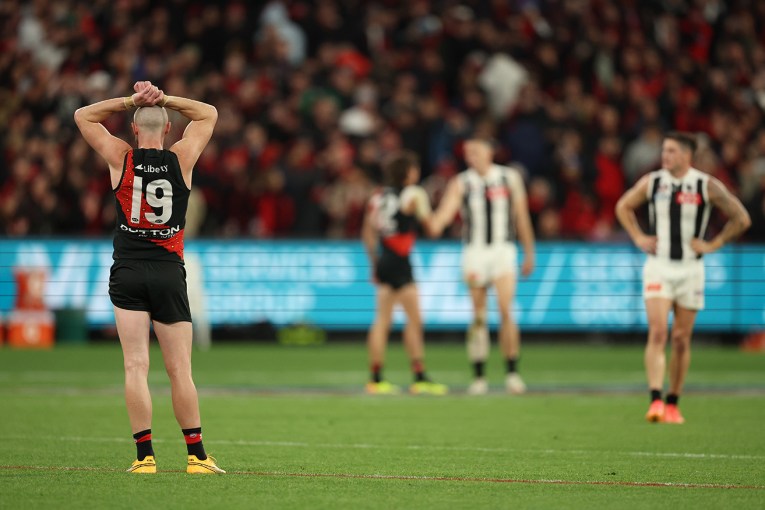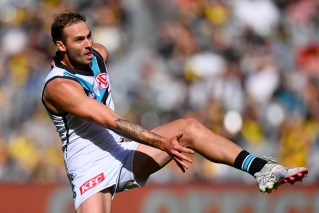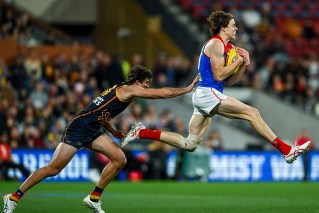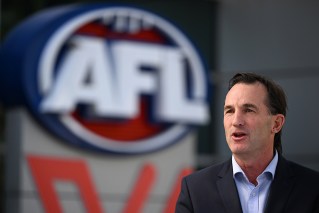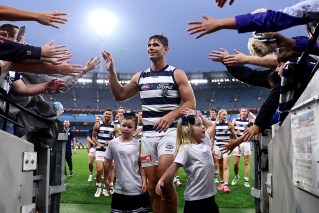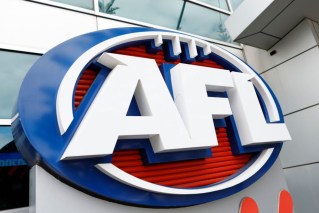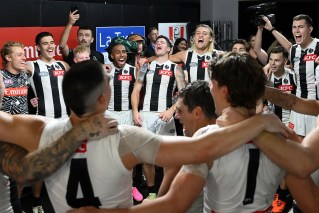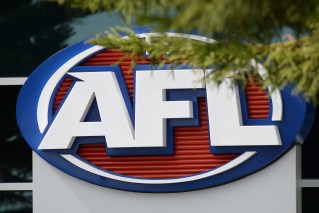Who are the big losers in the AFL’s money war?
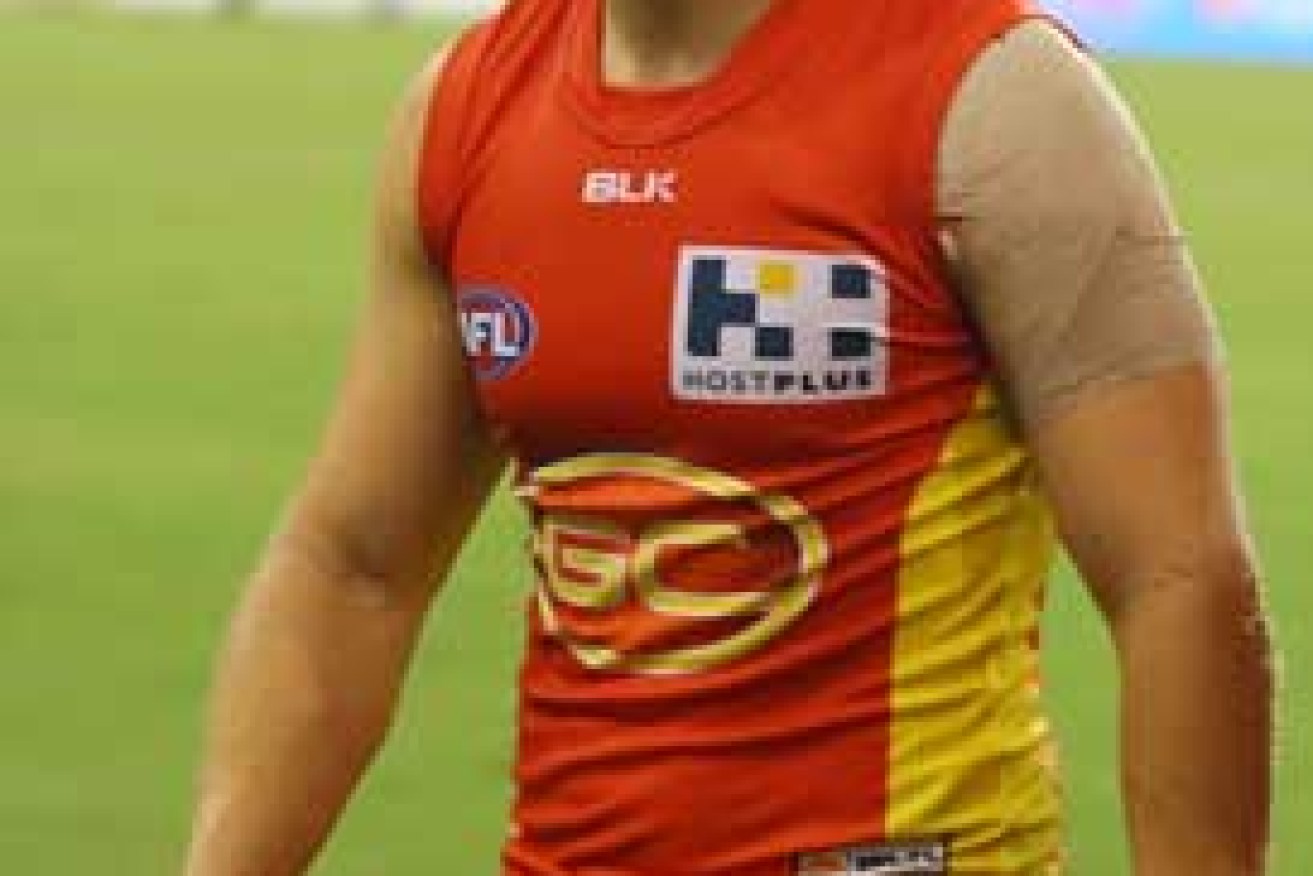
Gary Ablett is a blue-chip stock, but his Suns are a riskier proposition. Photo: Getty
Two AFL clubs are on the brink of financial collapse and many others are grappling with huge debts, threatening to cost the AFL millions to keep them afloat.
An investigation by The New Daily of the financial accounts of the AFL’s 18 franchises reveals that cashed-up clubs such as Hawthorn and Collingwood are more prone to achieving on-field success than clubs with clapped-out balance sheets such as Brisbane and St Kilda.
• Clarkson just lucky that no one got hurt
• Muslim footballer racially abused at MCG: report
• With respect, Mick should be tough enough
In fact, the data suggests that if Brisbane and St Kilda don’t start winning games, generating sponsorship revenue and signing up more members, their continued participation in the competition could become untenable for the AFL.
The analysis shows a massive disparity in the fortunes of the haves and have-nots in the AFL system. While the West Coast Eagles have $45 million in cash, clubs like Port Adelaide could be crippled if interest rates on their substantial bank debt began rising.
Among the main findings of the investigation were the following:

![]() Two clubs, Brisbane and St Kilda, are dead broke. Adelaide lost more than $8 million last year and Brisbane more than $3.5 million.
Two clubs, Brisbane and St Kilda, are dead broke. Adelaide lost more than $8 million last year and Brisbane more than $3.5 million.
Adelaide, Carlton, Western Bulldogs and Geelong ended the 2014 financial year without enough cash to cover debts due this year.
![]() Seven clubs made operating losses last year. The aggregate value of the losses was almost $18 million.
Seven clubs made operating losses last year. The aggregate value of the losses was almost $18 million.
![]() Eleven clubs made profits, led by on-field powerhouse Hawthorn. The aggregate earnings of the profit-making clubs were around $17 million.
Eleven clubs made profits, led by on-field powerhouse Hawthorn. The aggregate earnings of the profit-making clubs were around $17 million.
![]() Most clubs rely on revenue from pokies venues to bolster their bottom lines, but for some the returns from gambling operations have fallen short.
Most clubs rely on revenue from pokies venues to bolster their bottom lines, but for some the returns from gambling operations have fallen short.
![]() Westpac and Bendigo & Adelaide Bank appear to be the biggest lenders to AFL clubs.
Westpac and Bendigo & Adelaide Bank appear to be the biggest lenders to AFL clubs.
Here’s a wrap of where each of the clubs stand from a business perspective.
Adelaide
Verdict: Mortgaged to the hilt
The Crows posted a record net loss of $8.03 million last year, which has severely eroded the club’s balance sheet. They are under immediate financial pressure because at the end of October last year they had only $2.3 million in cash and liquid assets to cover short term debts totalling $9.5 million.
Brisbane
Verdict: Lehman Brothers
This club is broke. It made a net loss of $3.5 million last year, but the greater concern is the deteriorating condition of its balance sheet. If the AFL was not backing the club, Australian company laws would dictate it be placed in the hands of administrators. That’s because Brisbane’s total debts exceed its assets by $8.2 million.
Carlton
Verdict: Blues in the red
Carlton posted a net loss of $1.6 million in 2014 and did not have enough cash at the end of October to settle near-term debts. The club’s bold entry into the Victorian poker machine industry is causing headaches. Income generated through its Melbourne gaming venues declined in the six months to December. The financial accounts of one of Melbourne’s establishment clubs are slowly rotting.
Collingwood
Verdict: Sitting pretty
The Magpies’ profit did not include another controversial $10 million federal government grant, so the bottom line fell to $2 million last year from $16.3 million in 2013. The club remains one of the best managed in the competition with assets exceeding liabilities by more than $37 million.
Essendon
Verdict: Emerged from black days firmly in the black
Despite all the mayhem over the doping scandal, the Bombers posted a profit of $721,517. Great credit should be bestowed on CEO Xavier Campbell and finance director Paul Brasher. In financial terms, Essendon is one of the elite clubs of the league, with net assets of more than $38 million.
Fremantle
Verdict: Comfortable on and off the field
The Dockers tallied a small net profit of $215,729 and even though costs continue to rise, on-field success has ensured revenue is growing as well. The club still needs an extra few hundred thousand to cover short-term debt. Nevertheless, the Dockers have come a long way. The club’s net assets exceeded $10 million for the first time in 2014.
Geelong
Verdict: Glory days are gone
The juggernaut of the past decade sacrificed its former pristine balance sheet for an expensive stadium redevelopment. The Cats sunk to an operating loss of $251,207 and are battling to clear debts of more than $8.6 million due this year. The balance sheet shows the club last October only had $4.2 million in cash and liquid assets to cover these debts.

Gary Ablett is a blue-chip stock, but his Suns are a riskier proposition. Photo: Getty
Gold Coast
Verdict: Need a sugar daddy
AFL handouts worth more than $16.5 million carried the Suns to a profit of $1.6 million. Without special distributions from AFL the club would have lost millions. Makes you wonder how much that new contract Gary Ablett just signed is worth.
Greater Western Sydney
Verdict: May always need a sugar daddy
The Giants collected more than $20 million from the AFL and this was topped up with special government grants worth $2.4 million. The corporate welfare wasn’t enough though – the club posted a net loss of $529,315.
Hawthorn
Verdict: Powerhouse everywhere
An investment windfall of $1.59 million pushed the Hawks to a dazzling net profit of $5.2 million. With $9 million cash resting in the bank and other assets valued at more than $40 million, the salary cap is the only check on the club’s pursuit for more premierships.
Melbourne
Verdict: On the up, but it’s slow going
Club administrators appear to have arrested the run of horrendous financial results that culminated in the $3.1 million loss of 2013. The Demons inked a profit of $284,557 last year on the back of higher gate receipts and gambling revenue. But the balance sheet shows the club is still in a fragile condition.

Port chairman David Koch can’t get complacent. Photo: Getty
North Melbourne
Verdict: No need for a raffle … yet
The Roos had only $4000 in cash at the end of the 2014 financial year and are clearly under enormous pressure to settle bills. The club had short-term debts totalling more than $3.6 million on October 31 and ready access to assets of only $1.4 million. That’s a headache for the board.
Port Adelaide
Verdict: Nice shiny house, but rent a problem
Their on-field revival drew larger attendances and boosted revenue by almost $7 million. But a blowout in player payments and administration costs helped to keep the club in the red. Port should be generating bigger returns from its on-field performances and desperately needs to renegotiate the terms of its revenue sharing arrangement for its home games at the Adelaide Oval. With net assets of only $3 million Port has no leeway for more losses.
Richmond
Verdict: The Wolf of Punt Rd
The thunderous Tiger roar has returned to the MCG in recent years and the club’s balance sheet hasn’t looked this fit since the glory days of the 1970s. Richmond has no bank debt. While the club still seems a tad short of cash to pay its suppliers on time, Peggy O’Neal’s board and the executive group led by CEO Brendan Gale have engineered a remarkable turnaround. The 2014 profit was a solid $1.3 million.
St Kilda
Verdict: Greece
Close your eyes Saints fans because what you’re about to read should be almost as painful as the 2010 Grand Final replay. The Saints are broke – again. A net loss of $3.91 million in 2014 and an asset deficiency of almost $1 million leaves the club in serious strife. Poor on-field performance and dwindling membership mean the club is battling. Losing a Grand Final is hard, but losing your club is unthinkable.

Mark LeCras after poring over West Coast’s financial statements. Photo: Getty
Sydney
Verdict: Fit, but always precarious in NRL country
The Swans have one of the most expensive payrolls in the game, but the balance sheet indicates they are managed well. The club is carrying no bank debt and scored a monster $17 million through sponsorships last year. However, the net asset base of only $1.7 million leaves little room for financial misfortune.
West Coast
Verdict: Warren Buffett
If this writer was a fund manager with an option to invest in shares of an AFL club, he would put his money with the Eagles. The Subiaco-based club pumps out the seven-figure surpluses more consistently than any of its AFL rivals. With $45 million in the bank, the Eagles are the undisputed business champions of the AFL.
Western Bulldogs
Verdict: Heading in the right direction
The Dogs have invested heavily in a new entertainment venue, which includes a big splash on poker machines. But the bills keep stacking up and bank debt of more than $3.4 million needs to be settled or rescheduled this year. Chairman Peter Gordon and his board have banked a lot on the pokies investment paying off. A modest 2014 profit of $330,000 was a good start.
